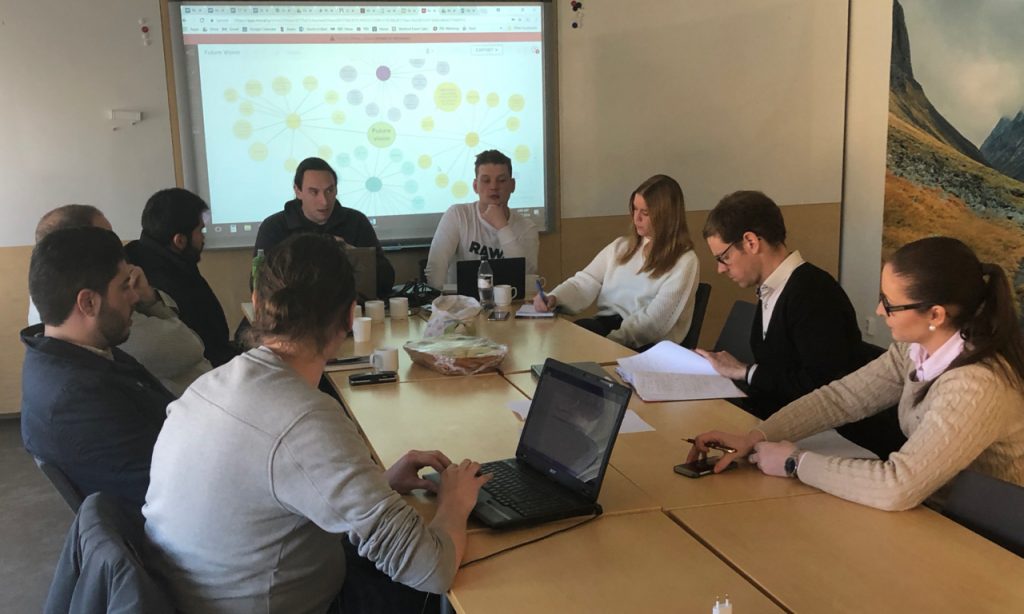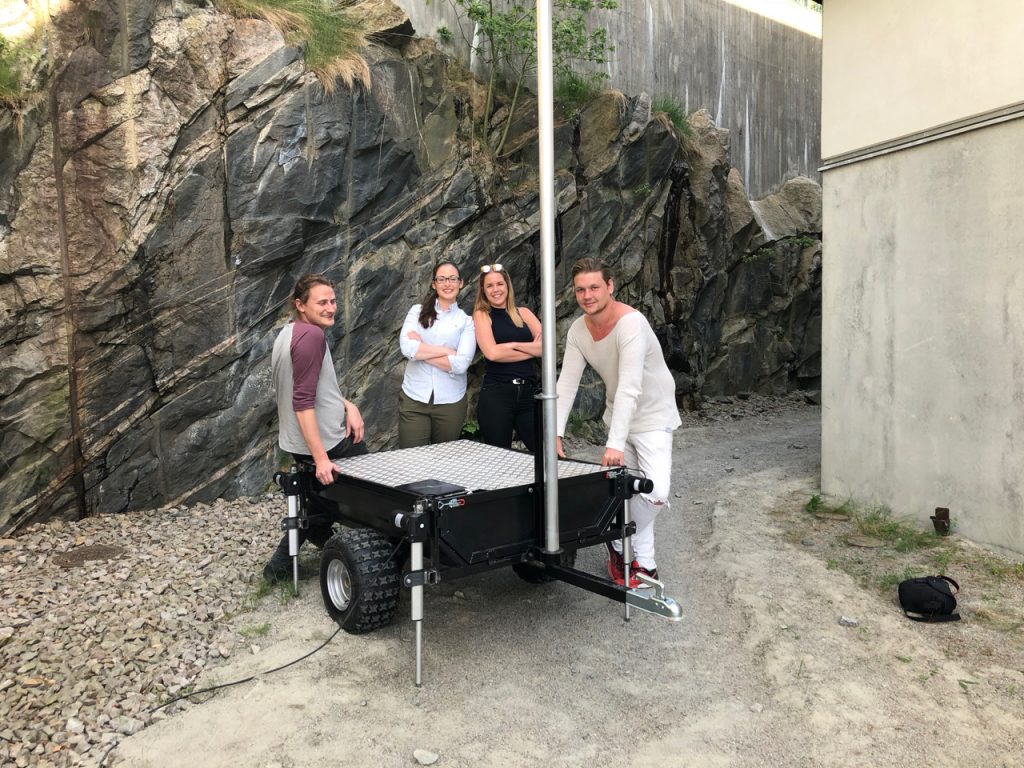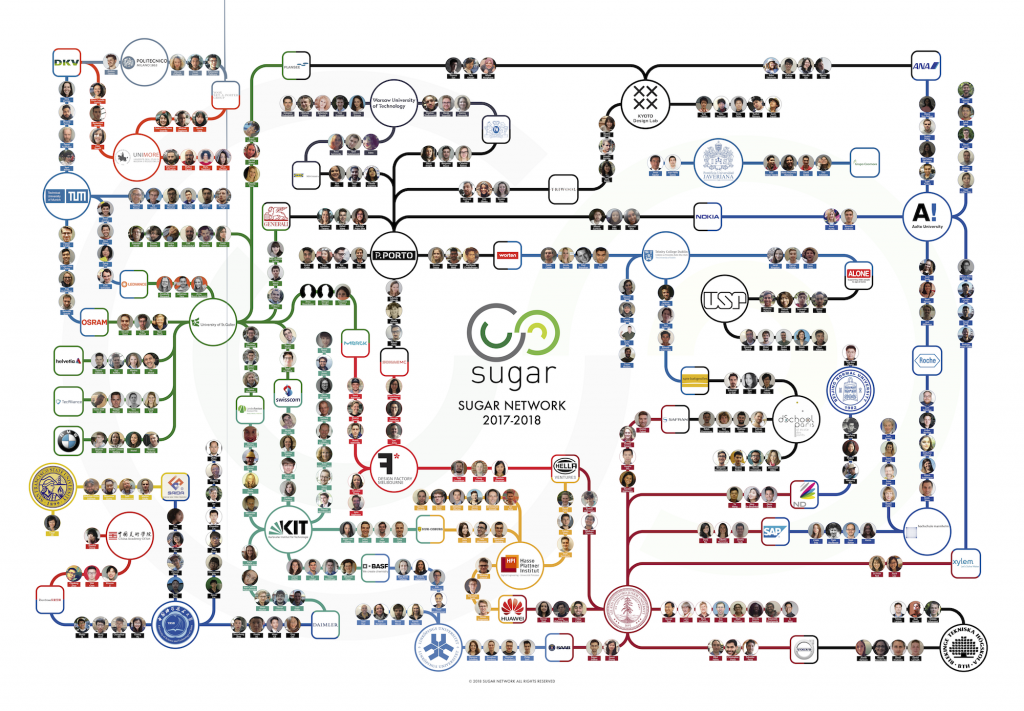
Stanford ME310 on final stretch
- Post by: Christian Johansson
- 30th May 2018
- No Comment
This year’s Stanford project, ME310, where four students from BTH have collaborated with three students from Stanford University, is in its final stage.
Now, the students will travel to Stanford to complete and present the project at the annual event Stanford EXPE (expe.stanford.edu) in front of teachers, companies and venture capitalists in the heart of Silicon Valley.
This year’s project has been carried out with and on behalf of Volvo Construction Equipment, which, with its Concept Lab, uses methods such as Design Thinking, developed with BTH and Stanford, to include and identify customers and intended users in early phases already and thereby explore concepts that can be the innovations that Volvo CE offer customers in the future.

The project has focused on the workers at the site and how their duties will change. The title of the project’s challenge has been ‘The pains of today and the concerns of tomorrow’, now that trends such as automation, electrification, and digitization change the construction industry. For example, many major cities in the world such as Paris and Mexico City will prohibit the use of diesel around 2025. This means that Volvo CE needs to redefine its product, for example, with regard to the driveline, and also automate certain products. This means that the workers in place will become colleagues with their robotized machines, which will change the view of the tasks and how to support them.
The students initially got the task of starting from a construction site and observing and listening to those working there to find aspects of their daily work with the greatest potential for radical innovation. What job do they need to perform today and how will it change in the future?
Without being restricted by the design of today’s product fleet at Volvo CE, the students have explored the need to support the new connected, electrified and automated fleet that will be found in the future’s construction sites. Developing concepts and solutions for managing dynamic connectivity, battery replacement, and other unforeseen interference in a continuously changing environment they aim to support the worker in maintaining uninterrupted operation, which is a great potential and consequence for automation of the site.

In the course ME310, which celebrates its 50th anniversary this year, global student teams embrace real-world design challenges conducted by business partners. Students face a problem that lies ahead of product development and explores user needs, benefits and social consequences from a system perspective. During the course of the year, the design space is explored through many concepts and prototypes, which are tested with users to produce radically innovative solutions. In the end, a fully functional proof-of-concept is being developed, which is demonstrated at the end of EXPE.

Together with Volvo CE, BTH has collaborated with Stanford in the ME310-project for the past six years.
For more information about ME310, see: https://www.productdevelopment.se/?page_id=1092
For further information about the project, contact Professor Tobias Larsson or Assistant Professor Christian Johansson Askling.
